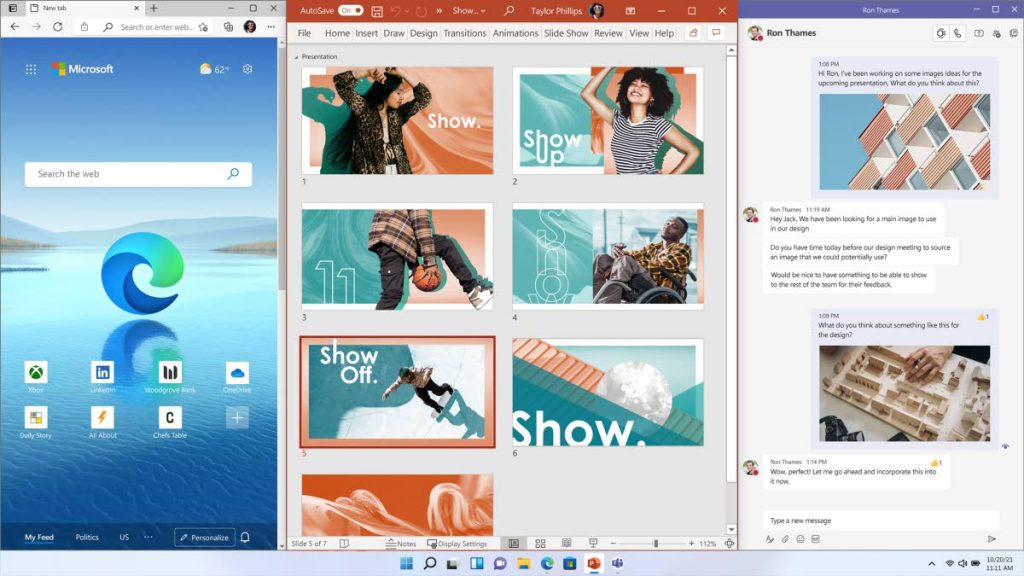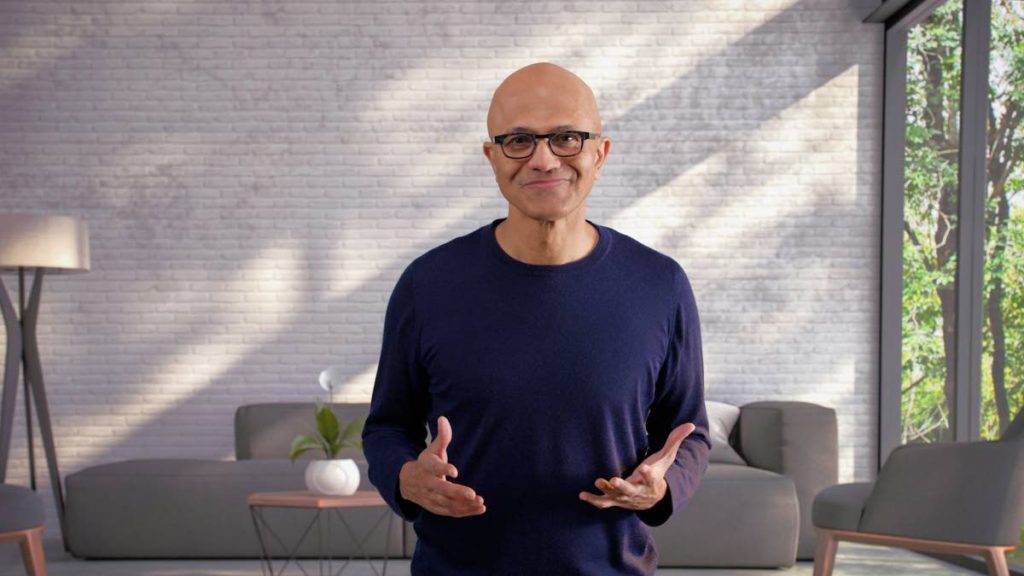Emphasis on function, security in a covid19 world

MARK LYNDERSAY
MICROSOFT formally launched Windows 11 on June 24 after a full week of reporting on a leaked early build and speculation about what happened to a version planned for dual-screen devices.
What was revealed was a version of Windows that represented an evolution of the current version, Windows 10, introduced in 2015 as a decisive rejoinder to the lukewarm response to Windows 8.
The online launch went deep on diversity; a sharp change from the usual Caucasian-led Microsoft line-up. In addition to high-profile women of colour, Windows Product lead Panos Panay is of Cypriot descent.
Introducing deeper integration of Teams, the company's video-conferencing and business collaboration tool, Panay noted, "I'm closer with my family in Cyprus than ever before. It's like we found a new tradition."
It's a smart move, because Windows is very much a global product, and the last 18 months have made it clear that technology, effectively used, makes vapour of distance and borders.
The launch emphasised the polishing of the interface and a host of usability changes that acknowledge the global reality of work from home and the rotating role that computers play in that environment.
Cosmetically, the new Windows 11 is shiny and glass-like in finish, with gently rounded corners everywhere, but behind that slick look are features that either improve existing Windows functions, borrow from other platforms or reduce the friction of doing common tasks.
Carmen Zlateef, partner director of Windows User Experience, worked hard to make the new document-organisation features of the task bar seem revolutionary, and took a spirited stab at making an implementation of virtual desktops or workspaces seem inventive and new in 2021.
New snap layouts and snap groups in the task bar that allow the user to recall recently used collections of windows and apps are clever and useful to have in the operating system, but were available as software feature additions on popular systems.
Other features and approaches take direct aim at competitors, notably an unnamed Apple.
Explaining the value of the improved Windows App Store, Panay noted that the rebuilt service offered its own commerce option (85/15 split to Apple's 70/30, now dropping to 85/15 for developers making less than US$1 million), but developers can use their own commerce engine and keep all the revenue.
Apple's app stores take 30 per cent of earnings and a high0profile trial is examining Apple's ban on the popular game Fortnite for trying to bypass the company's revenue structure.

The new OS will also support Android software from Amazon's App Store to create, as Panos put it, "a more open store." Of the new Intel 11th-generation chips and the large hardware ecosystem of Windows, he noted, "It brings you choice, where you can pick the hardware you want."
Microsoft CEO Satya Nadella took a more philosophical stance.
"With Windows 11, we have a renewed sense of Windows' role in the world," Nadella said.
"Windows is the stage for the world's creation. Creation is going through a sea change as the balance between consumption and creation changes. It is the platform for platform creators.
"Windows is the platform where things that are bigger than Windows can be born.
"Windows has always stood for sovereignty for developers and agency for consumers.
"There is no personal computing without personal agency. We need to nurture and grow our own agency over computing itself. We need to be empowered to choose the applications we run, the content we consume, the people we connect to and how we allocate our own attention.
"Operating systems should mould to our needs, not the other way around."
Windows 10 is, according to Microsoft, actively in use on 1.3 billion devices worldwide and many of those installations are in business.
The incentive to upgrade for those computers is quite different.
According to Wangui McKelvey, general manager, marketing, Microsoft 365, the company has worked to ensure that the switch to Windows 11 is no more challenging than an update to Windows 10.
While Windows 11 promises an update process that is faster and calls for update files that are 40 per cent smaller, that may be little solace, given how long updates take on Windows 10.
More usefully, the new OS is said to be "secure by design." Zero-trust settings and other security and protection settings are enabled by default on Windows 11.
For enterprise customers using legacy and custom-built software, the company promises apps will work on Windows 11 through its support service App Assure, which is available to volume licence-holders with more than 150 seats.
Steve Dispensa of Windows program management explained that the service has evaluated 800,000 apps since 2018, with a 99.7 compatibility success rate.
"Microsoft takes responsibility for ensuring that your apps will work," Dispensa said.
Despite the colourful rhetoric, oversold features and a new design that looks like the love child of Apple's Aqua Interface and Google's Material Design, the free update to Windows 11 promises to deliver where it counts, with compatibility, stability and, most importantly, security in an increasingly interconnected, digitally vulnerable world.
Mark Lyndersay is the editor of TechNewsTT.com


Comments
"Emphasis on function, security in a covid19 world"